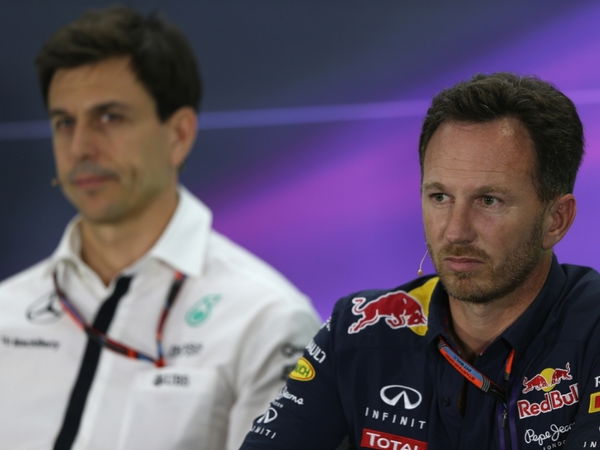Loopholes in Regulations Allows for Things Like DAS – Christian Horner

Follow Us

Formula 1 needs the arrangement to stop teams exploiting escape clauses in the guidelines, Red Bull F1 group head Christian Horner has said.
The start of the season is as captivating as it is questionable. Heaps of subjects to talk about. To begin with, there is the coronavirus that undermines the beginning of the championship. Then there are all the conflicts between the teams and the FIA for the ‘questionable’ arrangements brought to the track by certain groups and which therefore have produced discontent with rivals.
The FIA-Ferrari agreement on the Italian power unit is as of now grabbing hold. Apparently the conflict appears to be bound to keep going for a long time.
ADVERTISEMENT
Article continues below this ad
Another issue was the debate on the regulatory compliance of the Racing Point RP20. It stood out for everyone by demonstrating an inconceivable likeness to the 2019 Mercedes W10. It had been comparative just in appearance (something that additionally occurs between the new Haas VF20 and the Ferrari SF90 ) nothing would matter to anybody.
The issue is that the pink RP20 additionally appears to be fairly quick and if in Melbourne it will be in a battle with McLaren and Renault it is realistic to expect a legitimate activity by these two groups against the Lawrence Stroll group.
Red Bull F1 head Christian Horner believes Mercedes’ dual-axis steering system shows why it’s critical to close escape clauses from 2021.
The new sporting, money related and specialized guidelines coming the 2021 season have been intended to limit the provisos which groups can discover in the guidelines to make Formula 1 more financially savvy and serious.
It was the talk of the paddock during pre-season testing in Barcelona 😮
And now @ValtteriBottas says @MercedesAMGF1 are ready to unleash their innovative new steering system at the #AusGP 👀#F1 https://t.co/xLwnUQuk10
— Formula 1 (@F1) March 2, 2020
Red Bull F1 head Christian Horner believes the 2021 regulations will cover the loopholes
Horner thinks it’s important that the 2021 regulations allow for loopholes to be quickly closed.
“I think so because I think the problem is if you take DAS for example. It’s an innovative and clever system. There are arguments to and for, you can probably argue it both ways,” he told Racefans.net.
“The consequence of it is that inevitably it will drive costs for the teams that choose to exploit that kind of technology.”
“The problem we’ve got is the regulations are quite complex and not particularly transparent in the way that they are written. And of course, it all comes down to interpretation, which is often quite difficult.”
Although, Horner doesn’t agree that the new rules are a threat to innovation in F1. If a new development is worth it, then teams will ultimately pursue it.
ADVERTISEMENT
Article continues below this ad
“It depends what performance it yields,” he explained.
“So you may well develop something for even a 12 month period if it has benefit.
“Or whatever period of time you can get away with it. It’s like F-ducts, it’s like double diffusers. It’s like whatever suspension systems that used to be on the car, all those things.
ADVERTISEMENT
Article continues below this ad
“I think innovation has to be a fundamental part of Formula 1.
“I mean, here we are talking about the DAS system. It’s very clever, some bright engineers have come up with it. I think innovation is absolutely part of Formula 1.”
